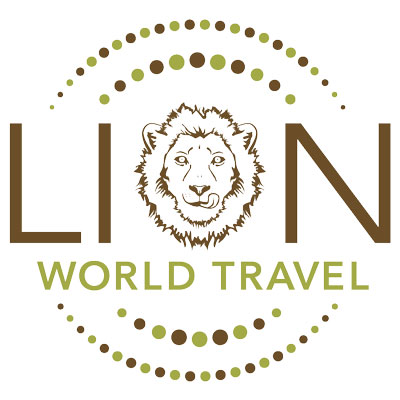Paradise Lost & Found: Reflections On Earth Month
As The Travel Corporation celebrates its first 100 years and Lion World Travel celebrates 55 years, we also mark the fiftieth anniversary of the first Earth Day, which was the seed that grew into Earth Month.
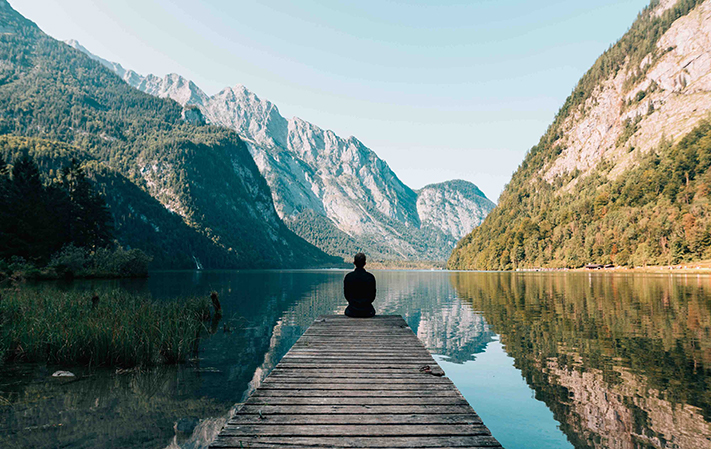
Dear Traveler,
This year, Earth Month arrives with particular poignancy. As The Travel Corporation celebrates its first 100 years, we also mark the fiftieth anniversary of the first Earth Day – April 22, 1970 – which was the seed that grew into Earth Month. Now, in 2020, Earth Month comes in the midst of a world-wide pandemic, bringing much of life – and virtually all travel – to a standstill.
Difficult as this is for all of us, it offers an opportunity to reflect on our relationship to this planet we all call home. This is especially true for those of us who have the great fortune to travel. If ever there was a time for a reset, this is it. With plans suddenly put on hold, it is a time to step back and ask ourselves some important questions. Why do we travel? What responsibilities come with our journeys? How do we want our travel to impact the planet we discover, the people we meet, and the wildlife we see?
While this pandemic is new territory for everyone, for those of us at TreadRight, these questions are not new. They are what led to TreadRight’s founding a dozen years ago, what drives us to do the work we do each day. For me, personally, these are questions that have shaped my career.
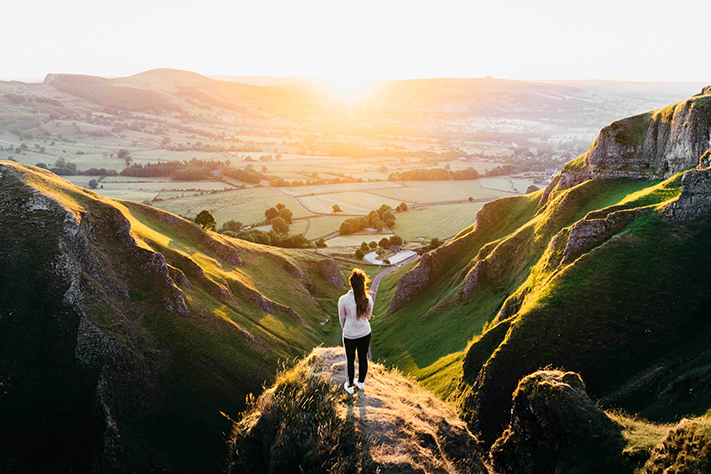
I am not exaggerating when I tell you I grew up in Paradise – just outside of St. John’s, Newfoundland, an island off the east coast of Canada. For me, as a child, the name of the town fit – from my front door I could run through empty fields and make it to Topsail beach to maybe spot a seal or two. Depending upon the time of year, every direction led to skiing, hiking, or paddling.
Back then, the economy of Newfoundland & Labrador was largely based on the fishing industry, particularly cod. That all changed in the summer of 1992, when years of overfishing by multi-national interests had reduced the northern cod population to near zero. The Canadian government banned the practice of cod fishing and, overnight, the industry was near collapse.
By the time I was 16, the tourism industry was kicking off quickly, and I soon found myself working as a sea kayak guide along the island’s rugged southern shore, with jagged cliffs above, swarms of jellyfish below, and, nearby, pods of fin, and minke and humpback whales that returned to the Grand Banks each summer to feed. Incredible a backyard as it was, what I saw in Newfoundland’s growing tourism industry left me perplexed.
The same boats that once fished for cod now arrived full of tourists, chasing whales and interrupting their feeding. It seemed that “fisheries” had been replaced by “tourism,” and guided by much the same attitude: Make money quickly, but turn a blind eye to protection. In the process of visiting paradise, tourists were trampling it. While not the intention, it was often the result. It seemed to me there must be a right way to discover natural beauty – and this was not it.
Seeking to understand, I went to university where I studied Outdoor Recreation and Environmental Education, then on to graduate school for a Masters Degree in Tourism and Environmental Management, writing my thesis on “Codes of Conduct for Marine Ecotourism.”
Anxious to put my newfound understanding into practice, I joined the operations team of a niche tour operator, which allowed me to put sustainable practices into place. We worked hard, did most of the right things, and thrived. And yet, when I looked at the big picture, our impact was limited. We were one of many such well-intentioned small operators, each working in our own space – while the damage being done by tourism around the world was vast, and growing.
From there I launched and built a tourism consultancy, where I was able to work with destinations worldwide to address the way in which they develop, sell and market their regions. And yet the projects I was working on were again, small, and I was eager to focus on sustainability at scale.
During this time TTC was a consulting client of mine, and as it came time for me to move beyond consulting, it was also clear that TTC wanted someone to take TreadRight and sustainability to the next level, looking to appoint their first Chief Sustainability Officer. I was intrigued, although in any other scenario would have been more than a little wary. I knew full well that the C in TTC stood for “corporation,” and I’m a cynic when it comes to what corporations say and do in terms of sustainability – I’ve never wanted to play a part in corporate greenwashing.
However, having worked alongside Brett Tollman and his team of executives for several years, I had seen the depth and sincerity of their commitment. We had worked closely on issues such as plastics in the travel industry, the impact of over tourism and support for micro enterprises.
The passion they brought to the work had grown steadily more intense and focused, coming down to three words: Make Travel Matter. I took the job.
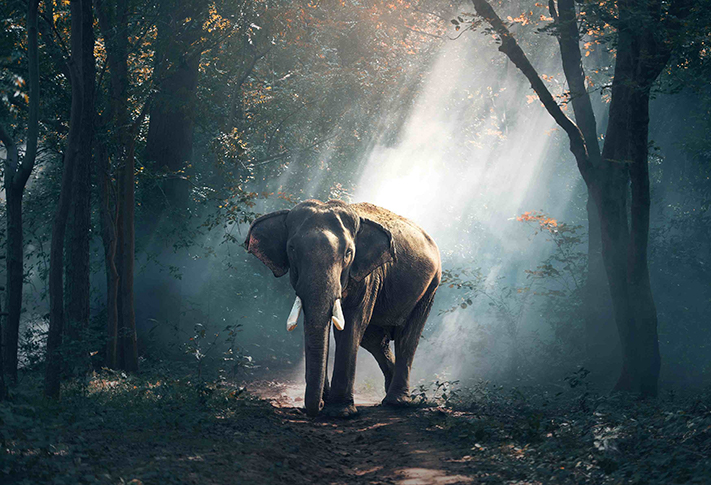
I’ve spoken of two P’s so far – the Power a large organization has to have impact at scale, and the Passion I saw from the teams at TTC. But there is a third P that is most important – Partnership. In order for travel to truly have a positive impact, we need coordinated efforts at every level, with all of us realizing that our efforts are part of the bigger picture. We began by identifying the three critical areas in which travel has the greatest potential for impact: Planet, People, and Wildlife.
With these as the three pillars of TreadRight, we looked to see who was doing the best work in each realm. This has led to us partnering with over fifty-five projects around the world, and a new, soon to be released company-wide strategy aligned with the United Nations Sustainable Development Goals.
As you now take time to consider your future travels, I invite you to share in the inspiration I find each day from the people and communities with whom we partner, like Rosamira, Executive Director of Proyecto Tití, which protects the critically endangered cotton top tamarin in Colombia. Through Wildlife SOS in Jaipur, India, you will meet the truly impassioned people working to inform tourists and prevent the cruel practice of riding elephants. And nowhere will you find more impressive visionaries than Sam Judd and Camden Howitt, co-founders of Sustainable Coastlines in New Zealand.
Last month – before travel was suspended, which now feels like a very long time ago – I spent an inspiring afternoon alongside other TTC volunteers, collecting and categorizing trash found on a New Zealand beach in the name of citizen science.
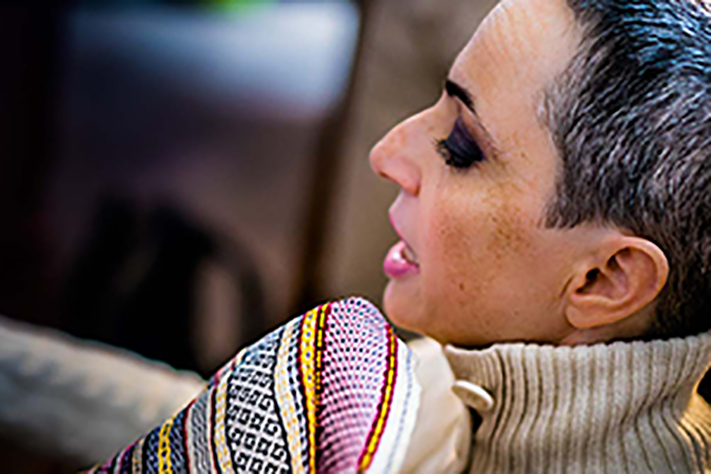
In her blog posting last month for International Women’s Day, Bea Tollman wrote that supporting women and girls is essential, and many of our projects do just that. When you travel to Perugia, Italy, you’ll meet Marta at Laboratorio Giuditta Bronzzetti. When I was introduced to her, she was working in a crumbling church with a hole in its roof, as the very last in a lineage of hand frame weavers carrying on traditions dating back to the Renaissance. TreadRight partnered with her to restore the church’s roof and develop her gift shop, where she now trains the next generation of weavers.
You’ll find a similar story in Peru,where Centro de Textiles Traditionales del Cusco preserves 10,000 year old Andean traditions while providing training and employment to women. And, at thirteen locations throughout rural Laos, you will find women and girls learning traditional techniques through Ock Pop Tock’s Village Weavers Project.
For now, I invite you to learn about all these incredible partnerships and more at TreadRight.org. When the time comes to travel again, you will have the chance to visit and support many of our partners around the world, through the amazing itineraries offered by TTC’s brands.
Some of TreadRight’s most important partnerships are with our ambassadors, who serve as our storytellers – and story listeners – around the world. Céline Cousteau, granddaughter of Jacques Cousteau and an accomplished activist, filmmaker, and explorer in her own right, serves as our planet ambassador – check out her beautiful video telling of the story of Iraq Al Amir Women’s Cooperative in Jordan.
Sarain Fox, our people ambassador, is a First Nations activist and artist, helping preserve Canada’s indigenous culture through Manitoba Mukluk’s Storyboot School. Check out her tips on how we make our travel matter.
This year TreadRight welcomed Ami Vitale as our first wildlife ambassador. An award-winning National Geographic photographer, she specializes in telling the stories behind the headlines. When travel resumes, she will be sharing stories from some of our projects in southern Africa, including those welcoming Red Carnation visitors to Bushman’s Kloof Wilderness Reserve & Wellness Retreat, South Africa, and Botswana’s soon to open Xigera Safari Lodge – which, by the way will be nearly 100% solar powered.
These are but a few of the places where we work, and I’ve told you why we do what we do – to Make Travel Matter. As TTC’s Chief Sustainability Officer, I also focus on how we put this into practice on a daily basis, ensuring that the positive impact of your travel begins long before your journey, through the practices of each of TTC’s 42 brands. We are eliminating all unnecessary single-use plastics from our offices, in our hotels and on all of our trips.
TTC’s Toronto office – where I work – is powered by geothermal power, and a good number of our offices around the world have had solar panels installed. As you can tell, when it comes to ensuring travel has a positive impact, there are a lot of moving parts – and a long way to go. But, as they say, Paradise was not built in a day.
I’d like to end with our most important partnership: You, our travelers. In addition to the visits you will be able to make with TTC’s companies to see and support these projects, a portion of every dollar you spend with every TTC company funds this work. And, please read and sign on to our travel pledge – which upholds the simple, key tenets of TreadRight and TTC – to help protect and preserve our planet, our people and their communities, and the wildlife of our beautiful fragile planet.
Just as I began this post with questions, I’ll end with one more, for you. The time to travel will come again – hopefully, soon. When it does, how will you make travel matter?
Please, take a moment to watch the video below.
Sincerely,
Shannon Guihan
TTC 100 Years - Make Travel Matter

